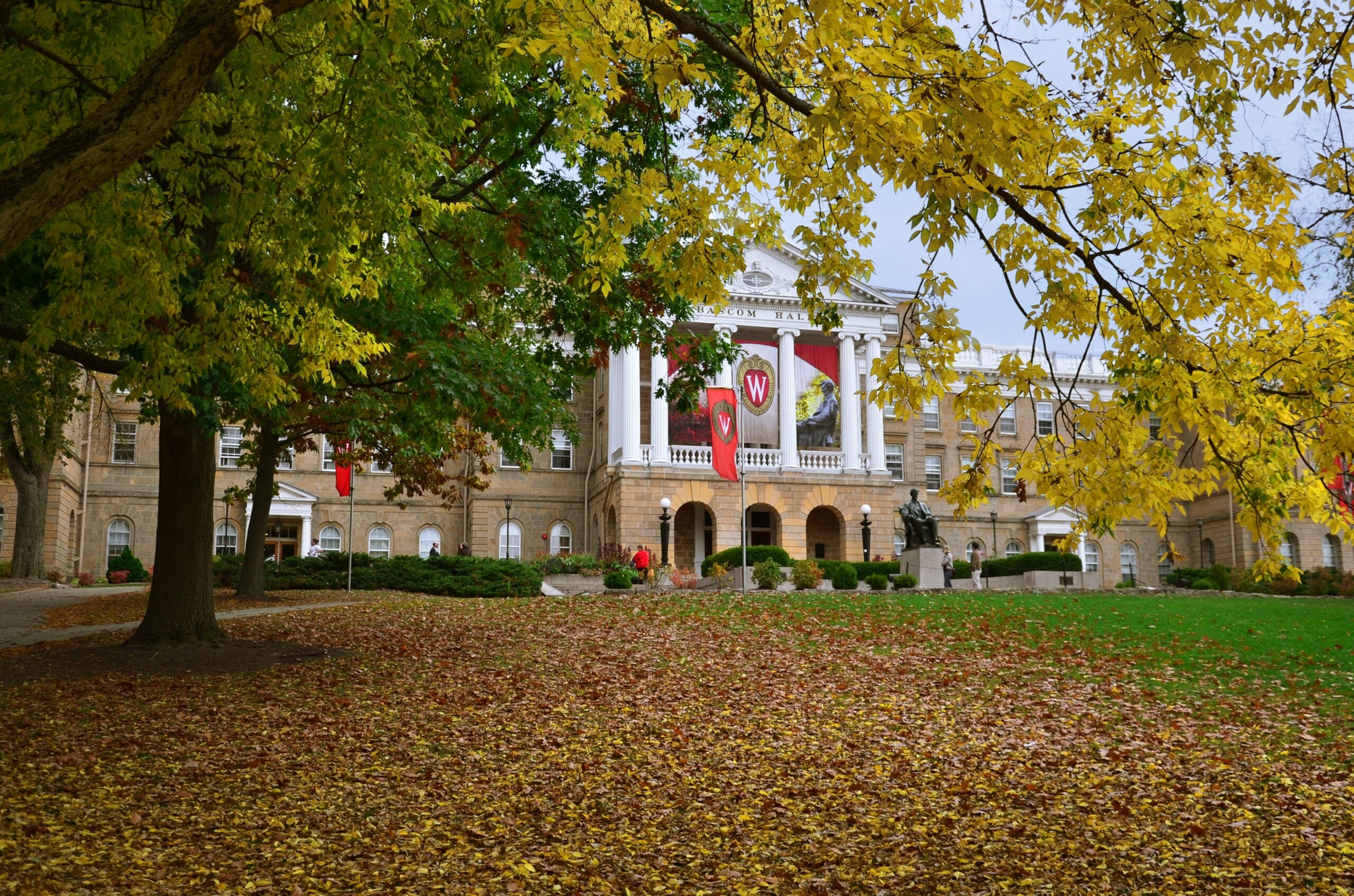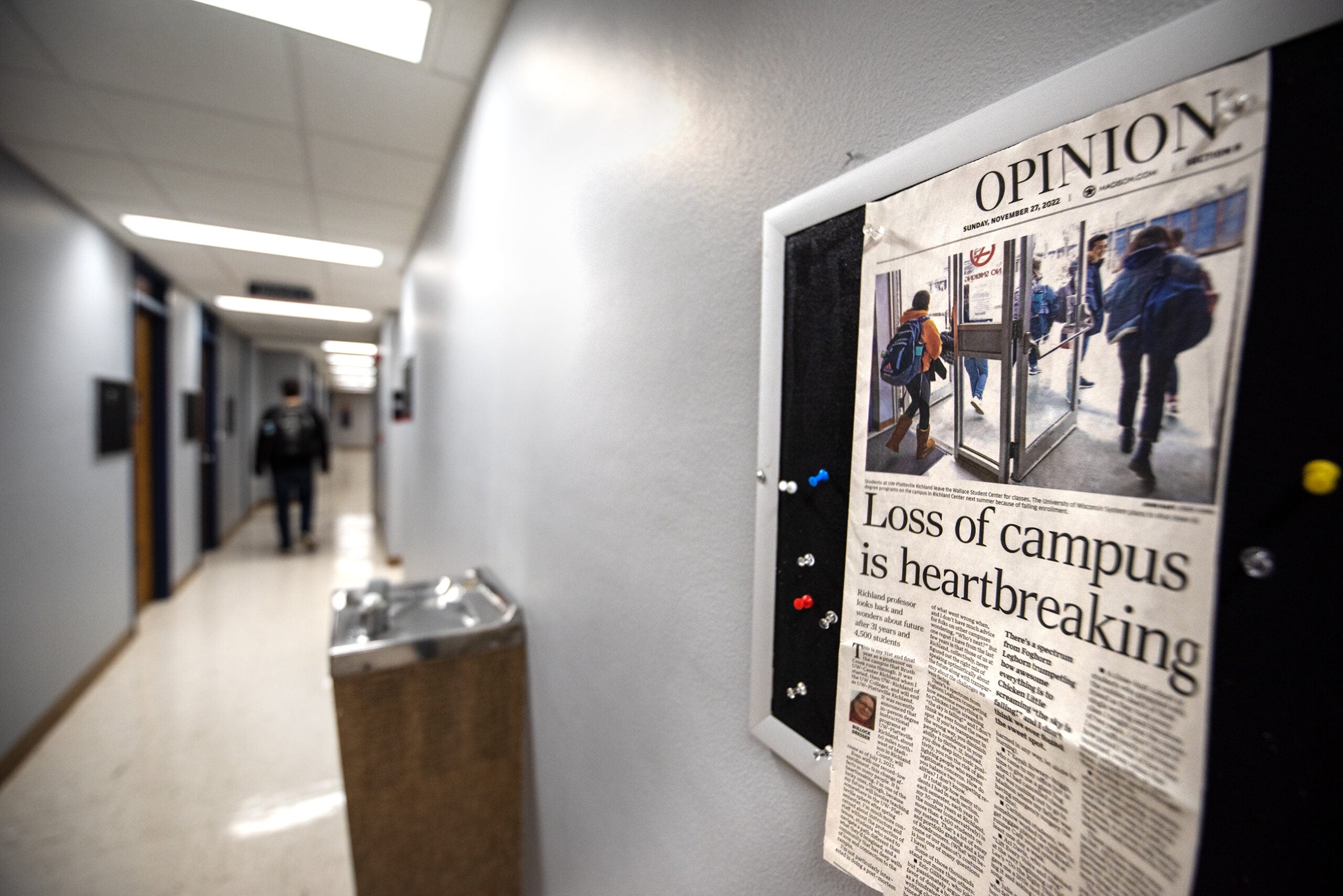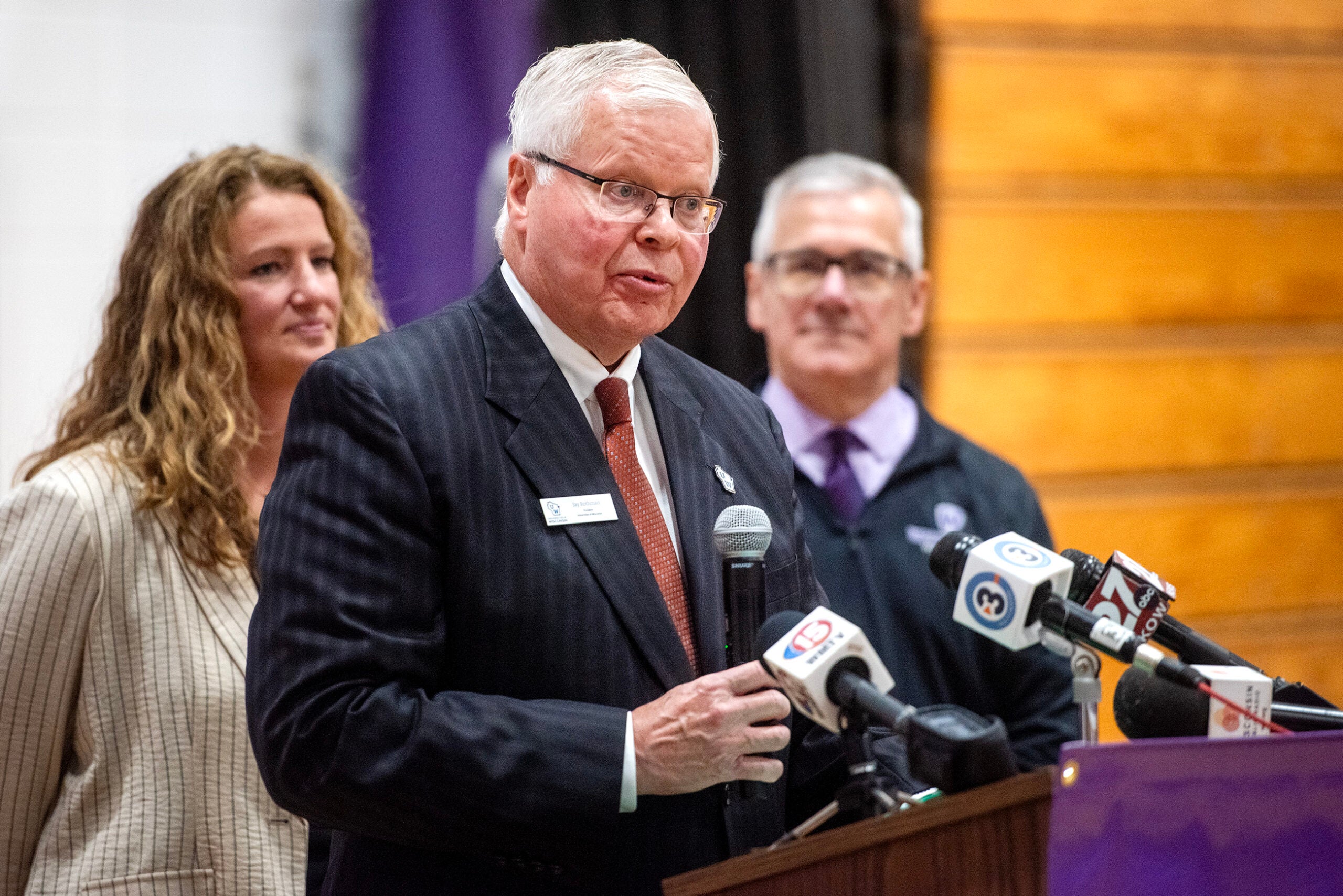The number of out-of-state students in the University of Wisconsin-Madison’s freshman class is up again.
This fall’s freshman class has 2,114 out-of-state freshmen – 72 more than last year – from different countries and states, excluding Minnesota, making up almost a third of the entire 6,430-person freshman class.
The increase comes a year after the Board of Regents allowed the university to remove the cap on the percentage of nonresident students enrolled each year. In return, UW-Madison had to increase the number of Wisconsin residents they enroll from a minimum of 3,500 to 3,600. This fall, 3,671 residents enrolled as freshmen.
News with a little more humanity
WPR’s “Wisconsin Today” newsletter keeps you connected to the state you love without feeling overwhelmed. No paywall. No agenda. No corporate filter.
“This (number of Wisconsin incoming freshmen) reflects our commitment to the state, it also reflects the fact that we continue to get very good kids from Wisconsin,” Steve Hahn, UW-Madison vice provost for enrollment management, said.
From 2014 to 2015, before the cap was lifted, UW-Madison had an increase of 247 nonresident students, compared to only 72 more students from 2015 to 2016. The number of Wisconsin residents enrolled decreased 133 from 2014 to 2015, but it increased by 54 students from 2015 to this fall.
Last spring, the Regents approved a tuition increase for out-of-state domestic and international students to increase tuition revenue. This fall, tuition for domestic nonresident and international undergraduate students taking 12 to 18 credits increased $1,536.36. International students pay $500 more than domestic out-of-state students. Wisconsin residents pay $5,244.24.
Noel Radomski, associate researcher and managing director of the Wisconsin Center for the Advancement of Postsecondary Education, questions whether the university will be enrolling more out-of-state students instead of Wisconsin students in the future to bring in more money for the school.
“From an economic standpoint, to get the biggest bang out of the tuition buck, you’re going to try to recruit as many international students as possible,” Radomski said.
Chancellor Rebecca Blank gave a State of the University address to the Faculty Senate in September in which she talked about financial strategies to develop multiple revenue streams to tackle budget cuts and the in-state tuition freeze.
She mentioned previous conversations with the Regents to expand tuition revenue by increasing tuition for out-of-state students and professional schools, and Blank said she will be back again this year to request the same increase. Regents previously approved two years of such increases.
Radomski believes more UW System campuses will request to have their caps on non-resident students removed in order to benefit financially from enrolling more students who pay higher tuition.
“International students may be taking the seats, or students from other states are taking the seats that Wisconsin residents had in the past or should in the future,” Radomski said.
Vice Provost Hahn said despite the growth of out-of-state students, it will not negatively effect Wisconsin resident enrollment.
“Our numbers this year compared to last year show a very modest, incremental increase in out-of-state students,” Hahn said. “We want to take a planned, incremental approach to this and not have what some have feared as a dramatic increase in out-of-state students.”
Hahn said the university is committed even more to Wisconsin students because they have increased the number of residents they will enroll even though the state’s high school graduation has been declining.
The total number of UW-Madison freshman class this fall is 6,430. Wisconsin residents make up 57.1 percent of that total, while nonresident students make up 32.9 percent. The previous cap on out-of-state enrollment was 27.5 percent. The cap will be lifted for the next three years.
Wisconsin Public Radio, © Copyright 2025, Board of Regents of the University of Wisconsin System and Wisconsin Educational Communications Board.







